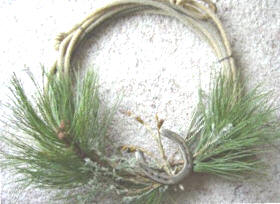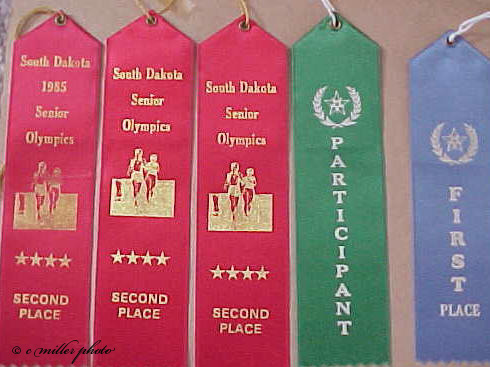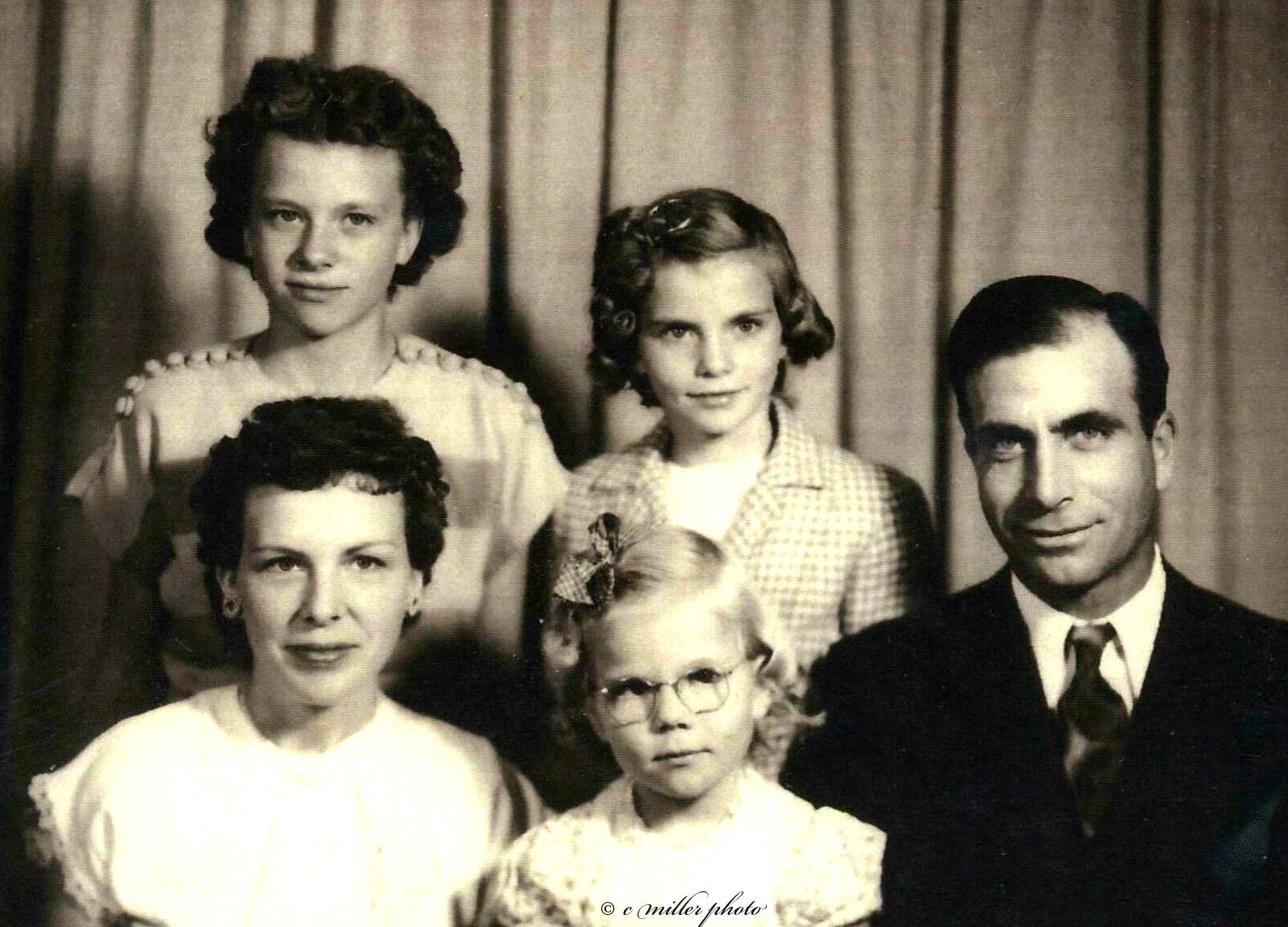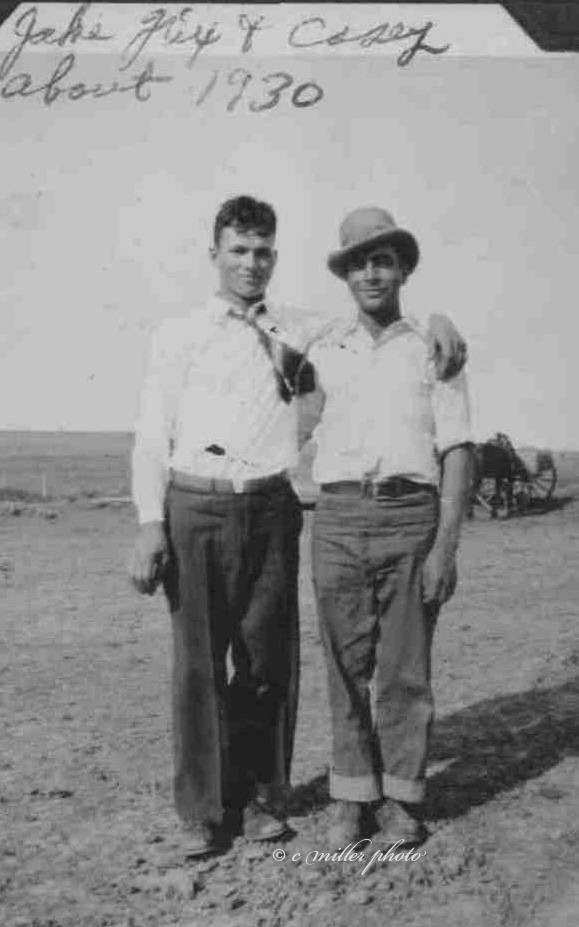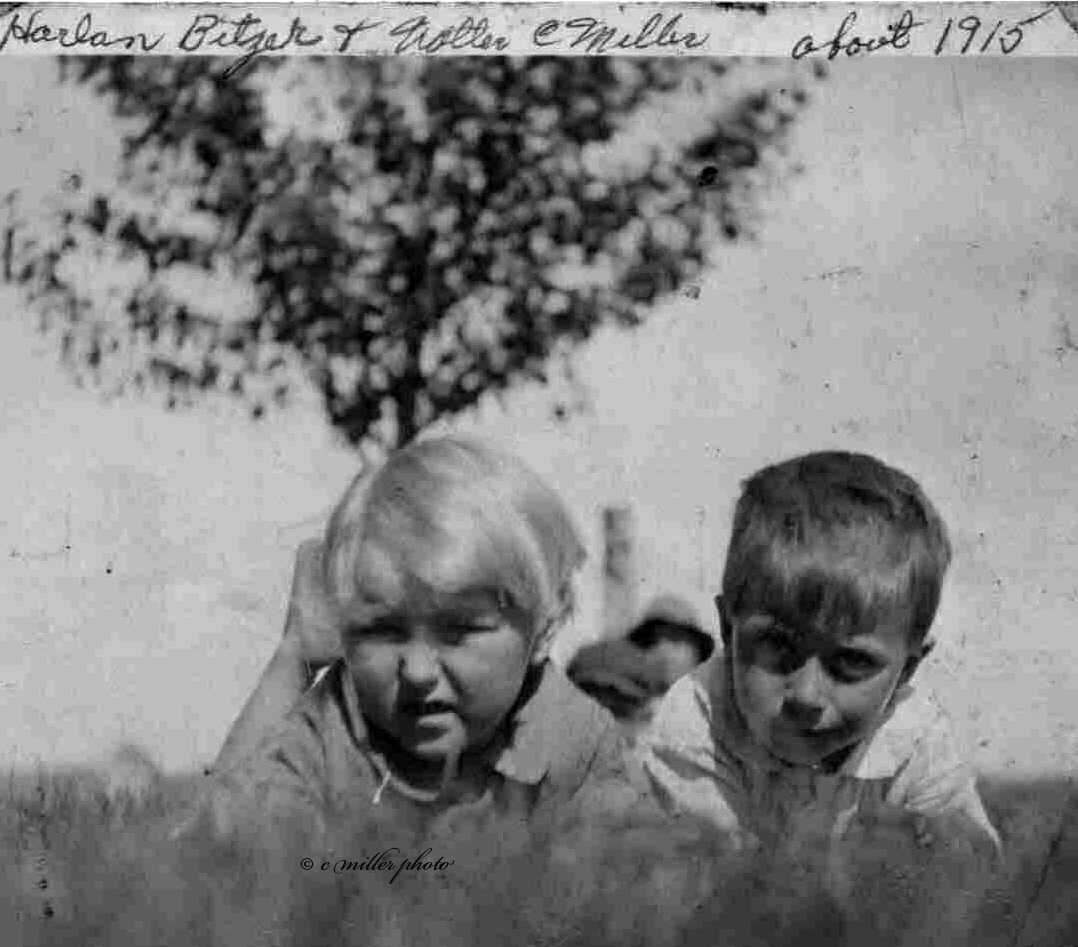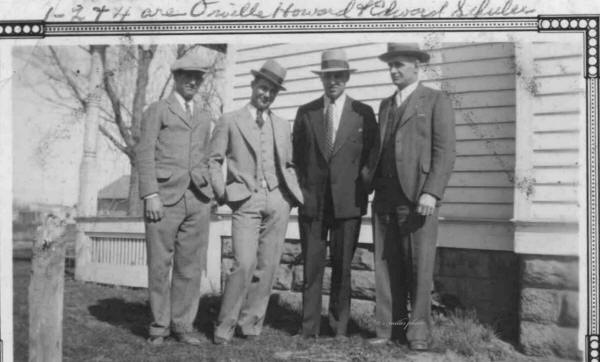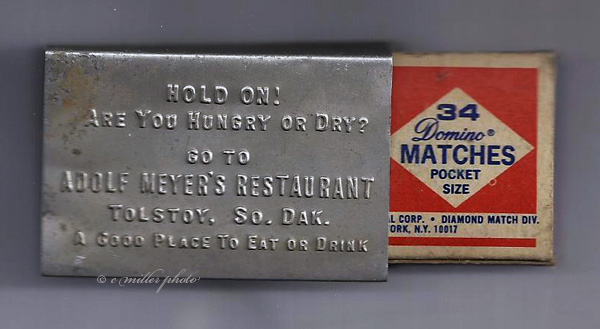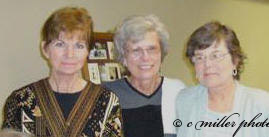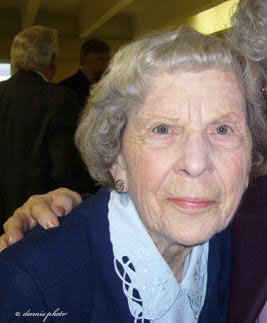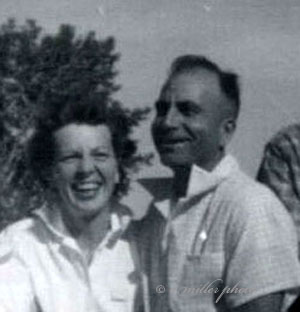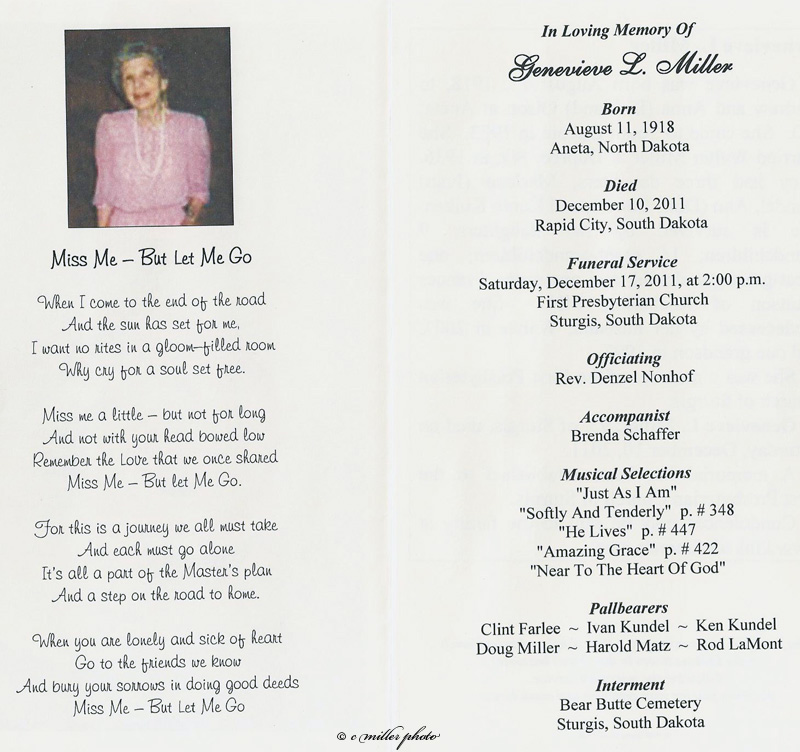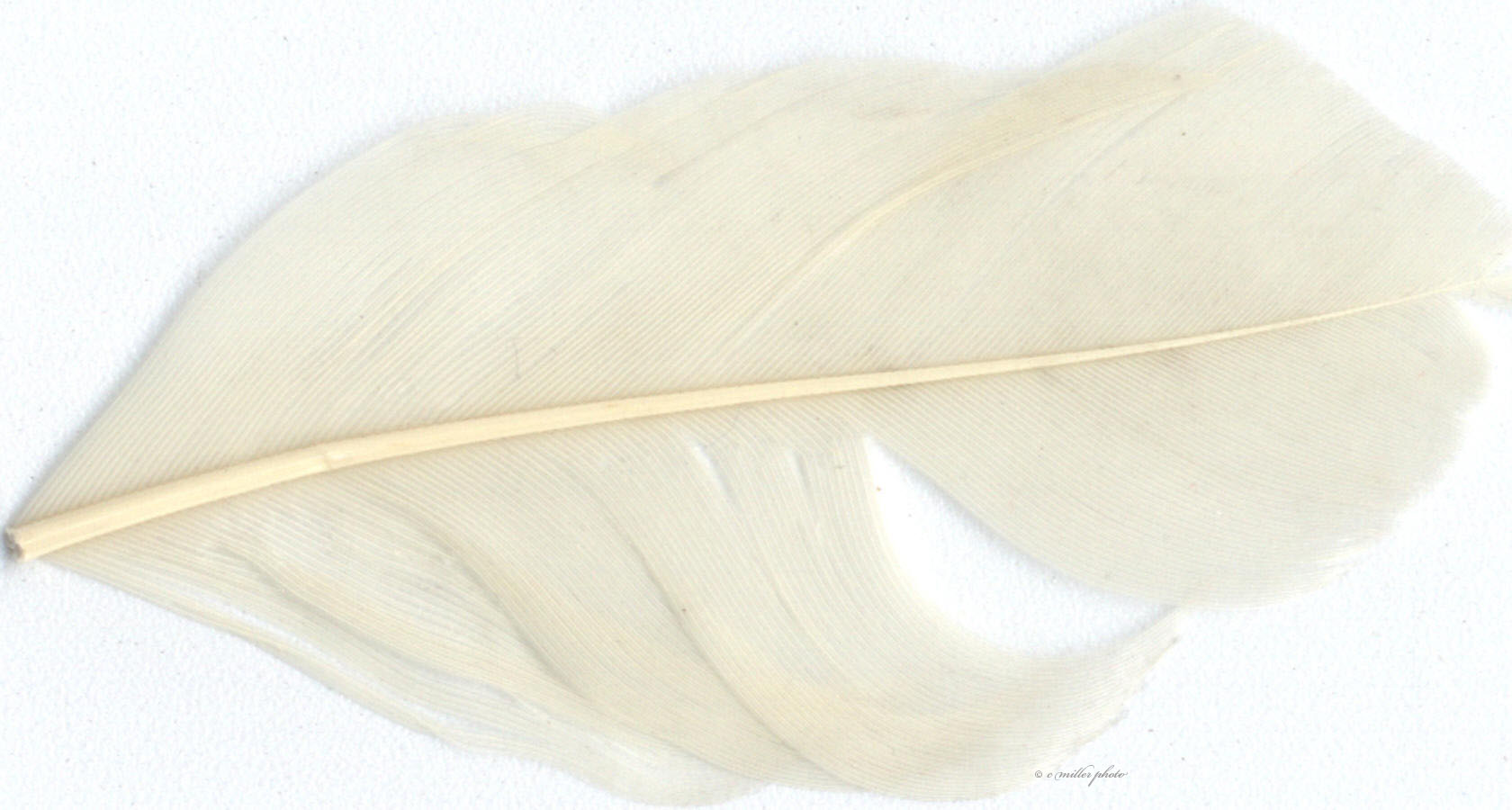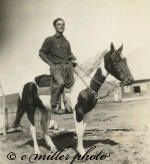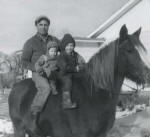A short while after I was born, Dad
brought his friend, Ed Kramer, to see the new baby. Ed, knowing that Dad
was proud of his Irish heritage, said, “Walt, that kid has the map of
Ireland on his face . . . you should name him Casey.” The name stuck all
through my life, and more people have called me Casey than have ever
called me Walter. This had one advantage, as the family didn’t have two
Walters, to add to the confusion of a large family.
1910 was one of the driest, worst
years the country had ever experienced. Dad heard about a big dam being
built on the Missouri River, at Great Falls, Montana. He headed west,
and worked there for several months. He also worked for a time in
Canada. Mother kept the home fires burning, caring for the new baby plus
four older children, two boys and two girls. I remember Mother telling
how hard it was to feed the family on
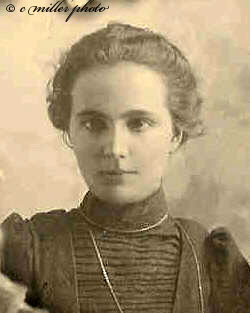 the little money Dad was able to
send home. Codfish was cheap that winter, and our diet consisted mainly
of potatoes and codfish gravy. Mother was the greatest! We kids
certainly thought so, and all who knew her said she could prepare good
meals for her family, which eventually numbered nine children, on next
to nothing. She was filled with all of the compassion and loving
kindness needed to hold a large family together. How great are the
memories of our Saturday night baths, when she put all of us through the
warm water in the old washtub and then stood us on the oven door of her
old cook stove while she rubbed us dry. I can still see her standing over
that old wash tub, the sweat dripping from her face, washing clothes for
the family of eleven, on the washboard. She worked so hard but never
complained. What a story her life would make!
the little money Dad was able to
send home. Codfish was cheap that winter, and our diet consisted mainly
of potatoes and codfish gravy. Mother was the greatest! We kids
certainly thought so, and all who knew her said she could prepare good
meals for her family, which eventually numbered nine children, on next
to nothing. She was filled with all of the compassion and loving
kindness needed to hold a large family together. How great are the
memories of our Saturday night baths, when she put all of us through the
warm water in the old washtub and then stood us on the oven door of her
old cook stove while she rubbed us dry. I can still see her standing over
that old wash tub, the sweat dripping from her face, washing clothes for
the family of eleven, on the washboard. She worked so hard but never
complained. What a story her life would make!
When we were small, our main
playground was down by the slaughter house, about two blocks east of our
house. The town butcher did all of his butchering in an old unpainted,
frame building. It had a plank floor with a trough that carried the
blood and waste into a small pond. I liked to watch the butchering, and
he liked kids, so we were buddies. The dirty pond served as our swimming
hole in the summer and skating rink in the winter. I always went
barefooted when there wasn’t snow on the ground (and sometimes when
there was), and would come home with blood and animal hair covering my
feet and legs. Mother would bring out the tub filled with water from the
reservoir of the old cook stove, and clean me up. She never scolded me
for it.
One time, when I was about 5 years
old, I decided to check on the spring runoff at the pond. I took my
oldest brother’s knee boots which came up above my thighs as Cully was
10 years older than I. The deepest part of the pond came right to the
boot tops, and of course that was where I wanted to go. All of a sudden,
I stepped on some ice on the bottom. My feet flew up and I ended up
sitting in the icy water, up to my neck. I got out of the pond and
started to run for home, following the railroad tracks. My older
brothers were looking for me, and found my trail. The weather was very
cold and I left a footprint of ice on each railroad tie as I ran. When I
got home, it was back to the oven door and a good rubdown from Mother.
All of the town kids played along
the railroad track. The older boys kept their tobacco and cigarette
papers hidden between the timbers under the railroad bridge. I felt
really grown up when they let me follow them as they went for a smoke,
and never squealed on them.
We had an old cat we called Muver
Cat, as she always had a litter of kittens. One of my best friends was
the middle-aged manager of the grain elevator, Bill Maier. He was
bothered with mice and wanted to buy Muver Cat. We made a deal – he paid
me 5 cents and I delivered the cat. The next day the cat came home, so
we made another deal – another 5 cents and I delivered the cat. I don’t
know how many times I sold him the same cat, but I heard Mr. Maier
joking with my dad about it one day. This was my first experience with
the profit system. My family has kidded me that some of my present
savings started from the profit made selling the old cat.
Our family had some very good
friends, Schulers, who had about the same number of kids as we did, and
all about the same ages. Their boy, Howard, was my age, and I spent a
lot of time staying at their farm which was 6 miles north of town. They
had a team of white mules we could ride plus many other animals we
played with. One time Mr. Schuler came to town with a load of wheat in a
high wagon, pulled by the white mules. I decided to go home with him but
didn’t want to ask Dad and chance being refused. I waited until Mr.
Schuler started down the road for home, and walked behind the wagon
where he couldn’t see me. When we arrived at their farm and I made an
appearance, he said, “Where did you come from?” I confessed to following
him home, and he called the folks. Mother and Dad had missed me and
alerted the whole town. They were quite relieved to find out I was in
good hands. After a few days I returned to town when Mr. Schuler took
the next load of wheat to market.
When my little 5 year old friend,
Oscar Brandt, started school, I couldn’t understand why I couldn’t go as
I was also 5 years old. There was no kindergarten in those days. I
followed Mother around the house coaxing, for several days. I explained
that I could already read. I had a primer I had received for my
birthday. I read it so much the pages had turned black from dirty hands
and I could recite parts of it from memory. In one of her weaker
moments, while she was trying to wash clothes with me tagging her,
begging, Mother said, “Alright. You can start, but don’t come around
asking to quit if you get tired of it!” I solemnly promised I wouldn’t.
However, after about a week of having to sit still in school, it got
old, and I wanted to quit. Mother ignored my protests and I was on my
way to an education.
When I was about five years old, a
circus came to Tolstoy. They set up the big tent, and staked out the
animals near the old slaughter house, our favorite playground. Since
this was definitely an invasion of our territory, we felt the least they
could do was to issue us free passes. When we presented them with our
proposition, they agreed to give a free pass to anyone who would take
the horses to the town well, and water them. I took the job. Our house
was about halfway between the circus and the town well, so after the
ponies were watered, I decided to show off a bit by riding one of them
past our house. I had never tried to ride a horse before, but I got on a
mare who had a little colt following her. With only a halter on the
mare, I couldn’t have controlled her even if I had known how to ride. She
ran, frightening the colt, who ducked under our front yard fence. Dad
managed to get the colt out and back onto the road without it getting
wire cuts, and I managed to stay on the mare’s back. When I got them
back to the circus grounds the caretaker told me I shouldn’t have done
it because they weren’t broken to ride.
My next riding experience was the
summer I was six. I thought I was old enough to ride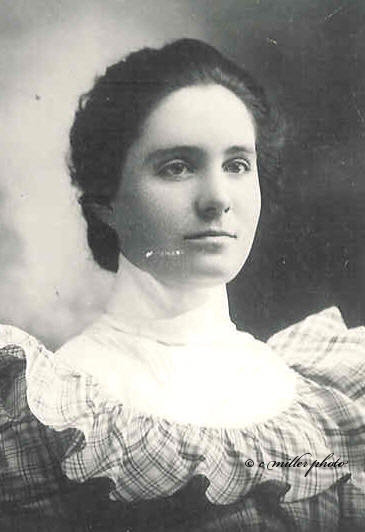 and walked to Aunt
Annie and Uncle Christian’s farm, about a mile northwest of town.
They had a driving mare named Pride they used to pull their top buggy,
which was very modern transportation at that time. After considerable
coaxing, Uncle Christian saddled the horse and I started for town to
show off to the other kids. Pride was high spirited and ran so fast I
fell off, going top speed. She stopped and waited for me, but I decided
I wasn’t quite ready to be a cowboy and I led her home.
and walked to Aunt
Annie and Uncle Christian’s farm, about a mile northwest of town.
They had a driving mare named Pride they used to pull their top buggy,
which was very modern transportation at that time. After considerable
coaxing, Uncle Christian saddled the horse and I started for town to
show off to the other kids. Pride was high spirited and ran so fast I
fell off, going top speed. She stopped and waited for me, but I decided
I wasn’t quite ready to be a cowboy and I led her home.
The same summer, my chum, Harlan
Bitzer, and I got into trouble for stealing vegetables from a widow
lady’s garden. Her garden was about a block from her house, and we
didn’t think she could see us as we each pulled a juicy turnip. Imagine
our shock when we looked up to see her bearing down on us, looking
mighty angry! We dropped the turnips and ran, making a wide circle to
lose her, and hoping to get home as fast as we could. As we glanced over
our shoulders we saw that she had stopped in at Harlan’s home and was
talking with his mother. Changing plans, we ran and hid in an old barn
just across the street from my home. Here we could peek out a small
window and see the widow and Harlan’s mother coming to our house. Mother
was out in the yard and although we could see them talking, we couldn’t
hear what they were saying. We know what they were talking about though,
and stayed in the barn all afternoon. When it started to get dark we
knew we had to go home and face the music. Mother didn’t spank me, but
she really gave me a lecture. She said “Mrs. Bitzer told the widow lady
that she knew Harlan would never steal vegetables, but I told the lady I
wouldn’t put it past you.”
A friend of Dads had a big steam
threshing machine he had to move from the job he had just finished to
another farm several miles away. His crew wasn’t available on Sunday, so
he asked Dad if I could drive the mule team on the water wagon and
follow the machinery. Dad said sure, and off I went on my first job. The
man started the steamer, hitched the mules to the wagon, and handed me
the lines. I told him I had never driven a team, but he assured me, and
rightly so, that all I had to do was sit on the seat holding the lines,
and the mules would know what to do. As I remember, about all I got for
pay was a new nickname. The one who hauled water was always called the
water monkey . . . and “Water Monkey” I was, from then on. The summer I
was 7, I decided I was ready for steady work and got a job driving
header box for a big wheat farmer, Howard McKray. My pay was $1.50 per
day, which was good pay because it was during World War I, and times
were booming. Also, I was experienced, having driven the mules the one
day, the summer before! The job lasted about three weeks and everything
went well except I went bareheaded. My hair was clipped short, right
down to the roots, and the sunburn I got really peeled my scalp.
I don’t remember too much about my
first year of school. Luella Nold was my teacher, and we had 6 month
school terms in a little one room shed. There was a pot bellied stove in
the center of the room and a double row of seats and desks along one
side. The teacher’s desk sat at the front, with a large blackboard on
the wall behind her. There was one long seat beside the teacher’s desk,
were she held classes. We always listened to the class one grade ahead
of us and the next year would be able to answer most of the questions
without studying. I remember one day a little guy wet his pants while
writing at the blackboard. He was too bashful to ask to leave the room.
The outhouses were so far from the school house he probably wouldn’t
have made it anyway.
My second year of school was taught
by our first grade teacher’s sister. I remember we got some new books
that year so our knowledge from listening to the grade ahead of us the
year before didn’t help too much in those subjects.
That year, on Halloween night, we
followed the older boys to Dad’s pool hall, the gathering place for
young and old. Harlan and I were still chums and decided that if the
older boys could pull Halloween pranks, so could we. There was a cream
station on Main Street, with about 30 empty cream cans in front, waiting
for their owners to come pick them up. We thought they would make a good
barricade across Main St., to stop traffic. With no streetlights, we had
to wrestle the cans in total darkness, and they were heavy for small
boys to lift. We finally had all of them in a line across the street in
a very effective barricade. Just as we finished, we were each seized by
an arm, and a gruff voice said, “you boys are going to jail for this!”
Horrors! The town marshal, Mr. Shortsman had appeared out of nowhere,
and had us in a firm grip. The jail had always spooked us, just to look
at the outside of the gloomy brick building, with bars on the windows.
Imagine what the inside must be like! The terrifying thought made me
nearly collapse in utter panic! Harlan and I must have been thinking the
same thoughts. We both lunged out of the marshal’s grip at the same
time, and ran as fast as our trembling legs would take us, straight for
Dad’s pool hall. Gasping for breath and shaking as we had never shook
before, we shot into the pool hall and asked Cully, Fred, and Harlan’s
oldest brother to hide us so we wouldn’t be sent to jail. Cully, always
the brave one, and not having any love for “Old Shortsman”, as the older
boys called the marshal, told us not to hide. He said, “Stand right
here, and if he touches either of you, we’ll bust him.” Mr. Shortsman
walked past the pool hall without a glance in our direction. When the
coast was clear, I scurried off through the darkness, wanting to get
home as fast as I could, and escape any more threats of doom that night.
For quite a few days, Harlan and I didn’t go downtown, and only when we
heard the marshal was out of town, did we feel really safe venturing
onto Main St.
My next teacher was a small Irish
girl, Miss Agnes Carr. She was a good teacher, but very strict. When we
were dismissed we would march out single file and were supposed to be
very quiet. Some of us were so glad to be dismissed that we would let
out a loud yell as we reached the door. One day she slipped out ahead of
us and stood by the door. When I came out with the usual YAHOO, she
grabbed me by the neck and flopped me onto the step. That was all it
took . . . no more war hoops. Her brother-in-law worked in the garage
and eventually, he seemed to learn of each prank I tried to pull. When
he would mention one of them to Dad, I would get a second punishment
when I got home.
The next school year was great! The
district built a large, two room building. One room was 1-4 grades, and
the other was 5-8. The rooms were divided by a large hallway where we
hung up coats. Overshoes and lunch pails were stored on the floor under
the coats. The thing that made this year so great however, wasn’t the
new building. It was because I had a secret crush on the teacher, Alma
Glanzman. She later became Mrs. Harold Bitzer . . .only because my love
was too good a secret! She is still living in Tolstoy now, 67 years
later. I visited her in 1981 and she still looked good. As I was
leaving after our visit, her eyes twinkled and she said, “Casey, you
were a little devil in school.”
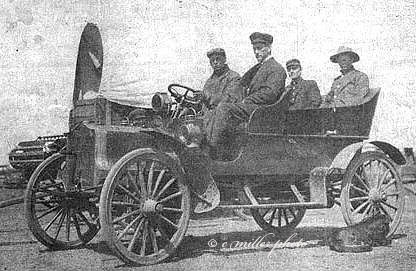 In the summer of 1919, Dad ran the
Overland Garage and sold Overland cars, plus had a repair shop. He had a
large office where a lot of people gathered in the evenings. Here the
older town boys would get us smaller kids to wrestle and fight to
entertain them. Some of the battles got savage, and I would give up
before I would draw blood on my best friends.
In the summer of 1919, Dad ran the
Overland Garage and sold Overland cars, plus had a repair shop. He had a
large office where a lot of people gathered in the evenings. Here the
older town boys would get us smaller kids to wrestle and fight to
entertain them. Some of the battles got savage, and I would give up
before I would draw blood on my best friends.
Our friends, the Schulers, bought a
home in Aberdeen, and Mrs. Schuler and the children moved there for
school. My oldest sister, Eunice stayed with them and attended school
until she got her teacher’s certificate. She then began teaching school.
I visited my friend Howard occasionally, and got some city experience.
The older boys wanted to farm, so
Dad sold the garage and we prepared to move onto a farm. All of us were
very excited about the move. Dad started going to auction sales to buy
machinery and livestock. The greatest purchase was a half-Shetland pony,
one year old, named Buster. Dad intended that Buster be my pony, but he
held back giving him to me, just to tease me. A farmer near town had
given me a runt pig for helping him, so I figured the best way to get
the pony would be to trade Dad the pig for him. One day I thought Dad
was in a good mood, so I propositioned him. “Dad, I’ll trade you this
pig for Buster.” Dad grinned, so I said, “Okay, Dad. The pig is yours!”
Dad, being an old horse trader, thought that was pretty good. I heard
him telling his friends and having a good laugh. Buster was badly
spoiled and would kick and bite us every chance he got. We lived on the
old Nelson Place, about a mile northeast of town. I thought I would ride
him into town to show off a little. He behaved pretty well until we got
right in the middle of Main St. . . . and then bucked me off in front of
several people. I was never so embarrassed in my life! I had to turn him
over to my older brothers who finally got him well broken. All of us
younger kids learned to ride on him. He was the greatest pony ever.
We lived on the Nelson Place in
1919 – 1920. We walked to school in town. It was a very hard winter and
my job after school was to fill all the horse and cow mangers with hay
from the big hay mow above the barn. I would go to the pig pens and pick
up corn cobs for fuel, after the pigs had eaten the corn. In the middle
of winter we moved to another farm Dad had rented, about 8 miles
northeast of town. It was later known as the Dickhaut Place. The move
must have been a terrible job for the folks and older boys, as the snow
was deep and the weather extremely cold. They moved the livestock and
machinery first, followed by the small amount of furniture and household
things we had. We kids all had the flu. Mother packed bedding around us
in Dad’s old Overland car and we drove to the new place. Dad had hired
on old Swede, Gus Nelson, a bachelor who was a carpenter, to help fix up
some of the buildings, and he had a good warm fire in the stove when we
arrived. It felt great. Mother fixed a warm meal and we settled in.
School was a problem as it was January and we were 4 ½ miles from the
nearest school. The older boys fixed up a light sleigh which I drove
with an old roan team of horses, Sam and Dick. They were a great team,
but the winter was so severe we missed a lot of school – so much, that
if I remember correctly, I had to repeat 4th grade. Perhaps some of the
other kids had to repeat also. Our teacher was Miss Black, but she must
not have impressed us much as I can’t remember anything about her.
When school was out, our first
spring on the Dickhaut Place was great. We had a lot of little calves,
pigs, colts and a good crop of kittens. My little brothers, Donald and
Delbert, informed Dad that if he would raise the calves and pigs, THEY
would take care of the kittens. One morning Delbert got up early to
check on the old cat to see if she had her babies. He ran back to mother
at the house and with a big grin, stuck up two fingers. “Two hes.” Then
he stuck up three fingers, “And three shes!”
Everyone from my little sister
Verna, on up, helped Mother and Dad hand milk about 30 cows. We sold the
cream and fed the skim milk to the pigs. Dad said we didn’t make much
money as cream was so cheap, but we didn’t have any time to go places
and spend money anyway.
It was my job to feed and water the
pigs. It seemed all 150 of them would try to be the first at the trough.
Their sharp feet really hurt when they stepped on my bare feet. My older
brothers and Dad used horse power to do all the farming. I would get up
early and ride Buster to round up the horses and milk cows. One not so
pleasant memory is herding the cattle one mile south, on an old vacant
farm, the Anderson Farm. I would ride Buster over in the morning and
have to stay until evening milking time. They were long days! The vacant
buildings were spooky and the area scary for a 10 year old boy. My older
sister, Hazel, would go down with me occasionally, for company. One day
the neighbor’s big black bull got out and came near us. He was roaring
and pawing, scaring us half to death as we were sure he was after us. He
only wanted to fight with our bull however, and never hurt us. We all
worked hard, but we had fun too. After the chores were done, we played
with our pets and played baseball. One evening Hazel and I were having a
cricket game. Hazel had new glasses and didn’t want them broken, so she
took them off and laid them on the ground. After the game was over, she
discovered she had stepped on them. They were broken and she had to get
new ones.
Every spring a great migration of
birds flew over our farm. We enjoyed watching the ducks, geese and
cranes flying overhead. The cranes would stop and feed in our corn
field. It looked as though the whole field was carpeted with cranes.
A man was drilling a well for us,
using a drilling rig powered by one horse. He liked to hunt and kept his
loaded shotgun beside him. As some geese flew over, he shot and crippled
one. It came down about ¼ mile west, so he unhitched the horse from the
rig and rode over to get it. He had quite a chase to catch the goose,
but Mother fixed us roast goose for dinner.
During this summer I noticed that
Mother was more tired than usual and would lie down to rest between
jobs. On the bright morning of May 15, 1921, we woke up to a baby
crying. A country doctor had been called, but we kids slept right
through it all, and didn’t know until morning that we had a baby sister,
Inez. The next day complications set in and Inez would have bled to
death if not for the help of a neighbor lady, a midwife, who came over
and helped her. She was a skinny little baby at first, but after a few
weeks of Mother’s loving care, she was a cute, plump little one.
The following winter we were able
to attend a school only 1½ miles from home, taught by Mrs. Binder.
Hazel, Verna, Donald and I drove horses and occasionally we would have a
race as we were headed home. One day, in a hotly contested race, some of
the tugs came unhooked and the sleigh tongue dropped down which scared
the team so much it started a runaway. Hazel and I both pulled on the
lines for all we were worth, until they pulled us over the front of the
sleigh. I don’t remember how Verna got off, but the team was running
away with Donald sitting in the back of the box. I was scared the sleigh
would roll over with the tongue dragging in the snow and the team
running full speed. I ran behind and yelled for Donald to jump out. That
was expecting a lot for a little 6 year old, but he crawled over the
back end gate and his feet hit the ground just as he let loose with his
hands. I was so relieved he hadn’t been killed even though blood gushed
from his nose as his face hit the frozen ground. Since both sides of the
road were fenced, the team couldn’t turn off. A neighbor came down the
road and stopped them. We hitched everything back up, got in and drove
home. We were lucky no one was seriously hurt. Donald had a sore nose,
but he was a tough little guy.
Delbert was too young to go to
school, but nearly every day as we came home, he would be riding Buster.
He was so tiny that he looked like a horsefly on Buster’s back. He
always had a handful of mane and his toes sticking right into Buster’s
sides, to keep from falling off.
When spring came we had a lot of
fun along with the hard work. Verna was small, but she could milk some
of the 30 cows as fast as anyone. She was a tomboy and tough as any of
the kids. Dad bought us a set of boxing gloves and she would stand toe
to toe to slug it out with any of the boys.
We liked to catch gophers and would
set traps on the school ground. We would watch them from the window
during school hours and whenever we caught one, we would ask to leave
the room, kill the gopher and reset the trap. We were lucky and didn’t
get caught. We played baseball and raced horses on Sunday. Buster could
beat most of the other horses even though he was small.
With fall came my 5th grade in
school. I was getting older and more serious about school. The farm we
lived on was sold so we moved in the middle of the winter to a farm one
mile west known as the Sam Wise Place. It was only ½ mile to school so
Sam and Dick got a well deserved rest while we walked. We all did well
in school and competed with other schools in the spelling matches or
spelldowns. Hazel and I used to stay up late at night drilling each
other. She won all the matches in her grade, but I had one girl in the
area I couldn’t beat. We pulled a few pranks that year that we shouldn’t
have done. One kid brought his 22 caliber rifle to school and kept in
the barn so we could target practice during recess. Thank the Lord one
kid squealed on us before anyone was hurt. The teacher took the gun
until the end of the year. We boys all wanted to be cowboys and would
take some of the horses out of the barn during recess and buck them. We
never got punished for that. I guess the teacher thought that was mild
compared to what we could have been doing. I remember one boy, whose
parents were about to have the bank foreclose on all their livestock,
who used to get us to make his horse buck. He’d say, “Give her hell,
she’s the banker’s anyway!”
A neighbor who had fancy, purebred
hogs, asked Dad to sign me up in 4-H with his son.
The nearest club
was
at Hoven, South Dakota, 15 miles from home. I would ride Buster to the
neighbor’s house and go to the meetings with them. The banker in Hoven
was our leader. I purchased a registered Duroc Jersey sow with fine
breeding and raised a litter of pigs from her. After giving them the
finest care possible, I took them to the club show and won first place
with a litter of four. I earned a trip to the South Dakota Sate Fair,
but we were so poor and busy I didn’t get to go. I didn’t say much about
it as I didn’t want Dad to feel bad because he couldn’t send me.
Click to enlarge all pictures
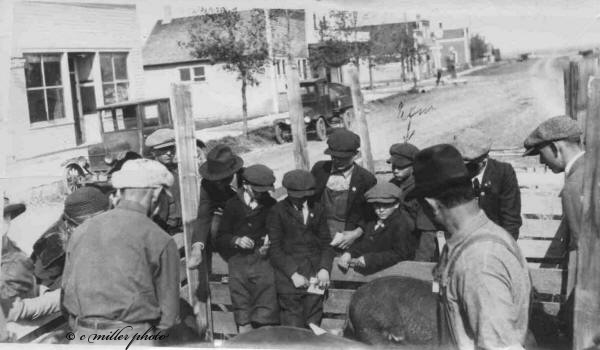
1921 wcm as marked is Casey
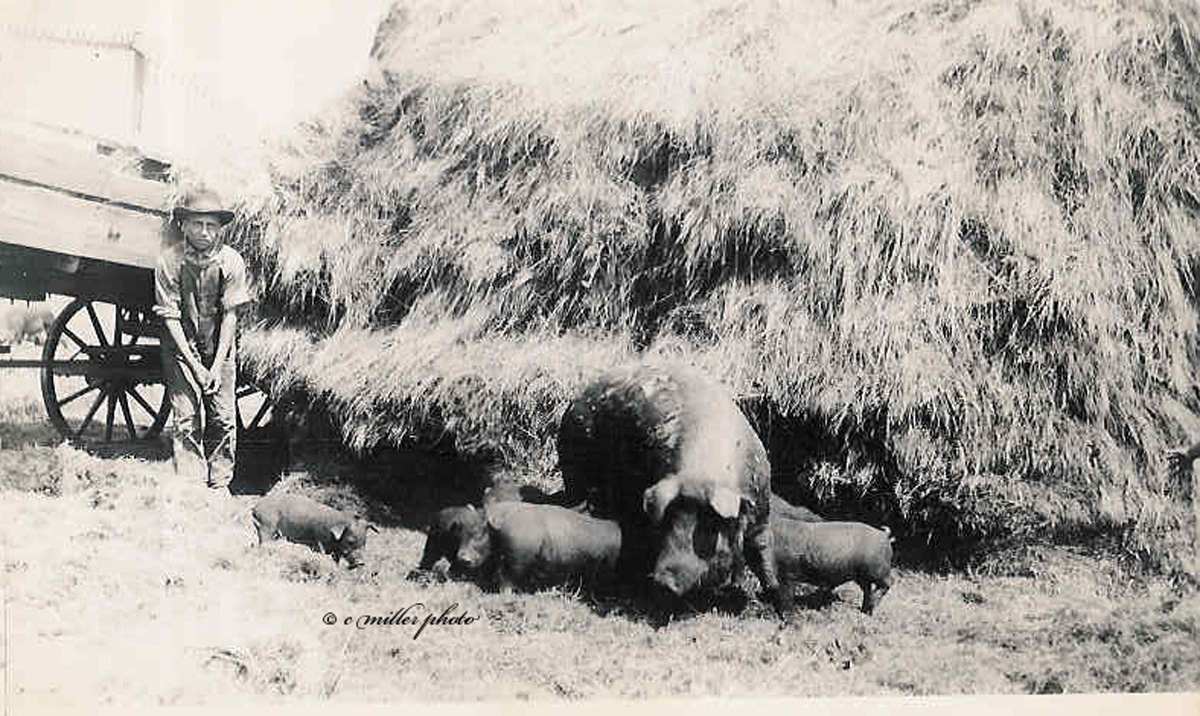
1922
Casey and his pigs
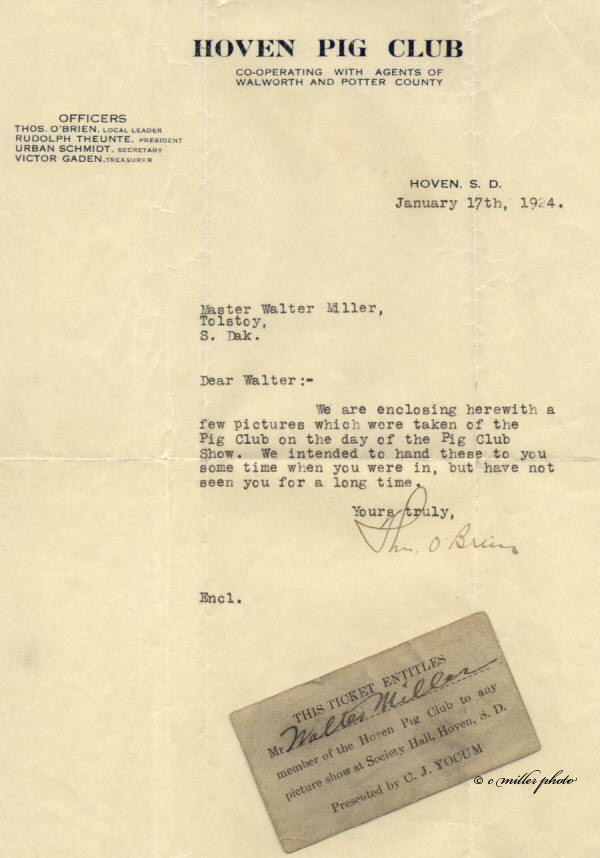
Eunice was teaching a rural school
about 4 miles east of home. To get to school, she drove
a two-wheeled cart with large wheels
pulled by a black mare
named Flip. She taught and even
did her own janitor work, all for $40 a month. The winters were
extremely cold, but she was hardy and hardly ever missed a day.
We missed Mother terribly for a few
weeks while she went to St. Luke’s Hospital in Aberdeen to have a very
large tumor removed from the side of her face and neck. Medical science
left a lot to be desired back in those days and the surgery left a big
scar and paralyzed her face from the severed nerves. She was unable to
close her left eye and her face sagged badly from then on. The family
felt sorry for her as she had been a very attractive lady. She never
complained and took over the family duties my sisters had handled while
she was hospitalized.
School was late getting started the
winter of 1922 - 23 because the school board had difficulty finding a
teacher. They finally hired Bill Keen, a strapping 6-footer from
Minnesota. Our school had a couple of boys about as big as he was, and
he was just what was needed to straighten them out . . .and straighten
them out he did! I don’t remember a single prank we pulled as we put too
much value on our lives. I loved Mr. Keen and learned more that year of
6th grade than any other year in school.
Dad rented a tract of land about 6
miles northeast of our farm during the summer of 1923 for putting up
hay. We pitched a tent up there and some of us stayed in it to care for
the horses. Dad was quite a horse trader and dealer, so we were always
using wild, spoiled horses. One day I was raking hay with a young,
half-broke blue roan mare and another spoiled blue roan mare that hadn’t
been broken until she was 8 years old. The flies were bad, the horses
started kicking and running, and I had to roll off the seat backwards to
save my neck. The horses ran toward home and I was afraid they might run
over some of the younger kids while they played in the yard. I ran all 6
miles behind them, and was very relieved when they got tired and slowed
to a trot before getting to the yard. It was amazing that they ran
through four open gates, pulling a 12 – foot rake, and never even hit a
gate post.
The 7th grade was a hard year and
took a lot of work. Our teacher, Miss Rostimily, had very little
discipline and rarely came out of the school house to the playground.
The big boys disrupted school and we had a lot of wrestling and fighting
out in the barn during the noon hour which left hard feelings between
some of the boys.
At home we had some fun and
excitement when Dad traded for a couple of broncos. Fred and I decided
to break them to ride. The snow was belly deep when Fred snubbed them to
the saddle horn of his gentle horse and took them to the field where we
mounted them. We rode several days before I decided the meanest one was
safe to be taken out alone. When we got out of the deep snow he really
took to me and bucked me off hard. At 13 years old I wasn’t quite ready
for anything that rough. Dad saw it and got angry. He said, “Bring that
SOB to me, and I’ll ride him.” He did, but it put him in bed for a week
with appendicitis. Dad was a small man in stature, but had a lot of guts
and would tackle anything if his Irish got up. He taught us the art of
dealing and not to be afraid to tackle anything that comes along.
Times were tough and we didn’t have
the money for the bicycle I had always wanted. One day I heard of a man
who had an old broken down one, so I hitched old Maggie to the two
wheeled cart and drove about 8 miles south to his place. The bike didn’t
have tires and some of the bearings were gone, but he sold it to me for
$2.50. When I got home, my oldest brother Cully said, “Where did you get
that junk?” I was highly insulted and said, “I’ll have you know that
isn’t junk!”, and began to work on it. I fixed the bearings and took
some of Dad’s big 1-inch rope to tie on for tires. I could ride it but
it rode very rough and pedaled hard. We were so busy there wasn’t much
time for riding anyway.
One day, after milking, I was
carrying two 5-gallon pails of milk to the house. No one was in sight
as I passed the bike and I thought, “Now is my chance!” The bike wobbled
when I got on and spilled both pails of milk just as Dad and my brothers
came around the corner. I wanted to disappear, but had to face them for
the dressing down.
The county was paying a bounty on
gophers. I trapped a lot, but wanted a rifle so I could shoot more of
them. After several weeks of coaxing, the folks didn’t tell me, but
ordered a new single-shot Winchester 22 rifle. What a wonderful
surprise! Jack rabbits were plentiful and worth good money, so the rifle
paid for itself in a short time. I shot and trapped fur bearing animals
and from then on bought all my own clothes from the income. Skunks
presented a special problem. The school teacher didn’t much appreciate
the way I smelled in school after trapping. One Saturday night I went to
town for a show and during the movie the manager asked me to move to the
back of the theater. I guess someone had complained. It didn’t bother me
as long as I was netting several hundred dollars each winter.
Dad rented another farm, the Brown
Place, about 10 miles southeast, near the town of Onaka, during the
spring of 1924. We kept the lease on the Sam Wise Place also and Cully
stayed there for another year. I liked the new place as we were closer
to town where I could play baseball. I was old enough to go to dances
with the older kids and wanted to dance so badly, but was too bashful to
ask a girl. One of the older neighbors was dancing with a big fat Dutch
girl during a tag dance, so he backed up to me and let loose of her. She
thought I had tagged him, grabbed me and we WERE OFF! That broke the ice
and I probably didn’t miss a dance the rest of the night.
The great depression was getting
closer and times kept getting harder. We raised a lot of grain which I
would stack during harvest. I also cultivated the corn and could do any
kind of man’s work. We even did custom work for the neighbors to pick up
a few extra bucks. My folks weren’t too fond of the teacher at the
school near the Brown Place, so they sent me back to stay with Cully at
the Sam Wise Place to go to school near there. This school had a new
building and for the first time, indoor plumbing. Selmer Thorson, the
teacher, was an old bachelor with bad eyesight and poor hearing from
measles when he was younger. Some of the kids played tricks on him
because of his handicaps. When the teacher had a class reciting up
front, he would have his back to the room. One of the big boys would
wait until he had turned around and then pull out his can of tobacco and
cigarette papers. He would scratch the tobacco loose and the tin can
would creak and crack, but the teacher couldn’t hear him even when he
stood right in front of the boy’s desk. With the whole school watching,
he would finish rolling the cigarette, put it in his pocket, and ask to
leave the room. Mr. Thorson had a terrible temper, and we all shook with
fear for the boy, but he didn’t get caught. If he had, Mr. Thorson would
have beaten him unmercifully. Once he struck a boy with the stove poker
and put a big lump on his head. I did well in school that year, 8th
grade, as Mr. Thorson was a good teacher.
In the spring the folks had me come
back to the Onaka town school the last couple of weeks, to review the
year’s work. I took my 8th grade final exams at the county seat,
Faulkton. I got the highest grade in the whole Onaka district, which
made me very happy.
The summer of 1925 found things
about the same. . . a lot of hard work with very little profit. Dad was
indebted to the Tolstoy Bank and we could hardly make enough to pay the
interest on the loan. It was a losing game so we sold out and turned the
proceeds of the sale over to the bank. We decided never to have any more
debts! We had a few head of livestock that belonged to us kids. We made
our own harness and we boys took jobs to finance planting the crops.
Eunice and Hazel were both teaching and helping out at home. After
harvesting a fair crop though, we had so much rain that a lot of the
grain sprouted in the stacks and was worthless. We were able to eat from
the few cows and hogs we raised, but that was about all we had.
Dad was notified that the coal
dealer in Onaka had a carload of coal on the railroad track. He would
sell it at a reduced price if it could be removed within one day. The
team of mules Dad asked me to take were spoiled and would run away every
chance they got. I hitched them to the wagon with the high box, took the
scoop shovel, and went to town. The railroad car was on the side track
and I had to pull up between the two tracks to load. One was the main
track the train would be coming in on and the other track had the coal
cars on it. I thought I had time to get loaded and out of there before
the train came in. I had the lines tied to the railroad car where I
could get ahold of them in a hurry if the mules decided to make a quick
getaway. I just got the big load shoveled on when I heard the steam
engine whistle as it came around the bend. I knew it meant big trouble,
so grabbed the lines and stepped onto the load of coal. The mules reared
up on their hind legs as I tried to hold them into the side of the car.
They lunged forward and pulled out toward the main track and tried to
cross ahead of the train and get away from it. The load was too heavy
and when the front wheels hit the track, it stopped them. The steam
engine struck the mules and knocked them off the track, breaking the
wagon tongue. One of the mules was hurt and they were too scared to move
by that time I jumped off the wagon and started unhitching the team from
the broken tongue. One of the mules kicked me on top of the head as I
was down on my hands and knees. By that time the engineer had stopped
the train and came back to where I was. I was bleeding profusely. Several men
came real soon and helped me, one of them being the implement dealer who
sold wagons. He left and came back with a new wagon tongue and repaired
the wagon. I hitched up the mules and drove home, about 3 miles, with
the coal. When I got home, Dad took charge of the team and I went to the
house. Mother removed my blood soaked clothes and washed the wound. I
imagine some turpentine was used for disinfectant. There were no doctors
in the area at that time, so the wound wasn’t sutured and I still have a
large scar. The mules lived, but one was lame after that. They still had
enough life to cause many other runaways. I think it would have been to
our advantage if the train would have killed both of them. I would have
had one less scar and we would have been spared the later runaways.
That fall I started high school in
Onaka. It was held in a one room basement with one teacher for everyone.
There was very little choice of subjects and Latin was required. I hated
Latin and couldn’t see where I would ever need it, so I dropped out to
work on a dairy farm. The younger kids, Verna, Donald, Delbert and Inez
were all in grade school near the Brown Place.
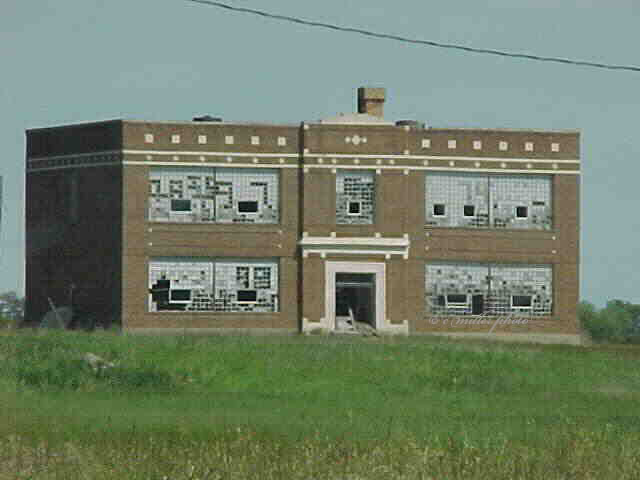 The summer of 1926 was very dry and
crops were poor. We kept debt free by all the family helping at home
with income from outside jobs. That summer Onaka built a new two story
brick school house. I worked there most of the summer, pulling all the
materials up to the second floor with a hoist pulled by a horse. That
fall I tried going to high school again, but after a year of working it
was too much and I dropped out again. I have always felt this was a bad
decision.
The summer of 1926 was very dry and
crops were poor. We kept debt free by all the family helping at home
with income from outside jobs. That summer Onaka built a new two story
brick school house. I worked there most of the summer, pulling all the
materials up to the second floor with a hoist pulled by a horse. That
fall I tried going to high school again, but after a year of working it
was too much and I dropped out again. I have always felt this was a bad
decision.
The next three years were normal,
hard work for the entire family. Farm prices were low, but with everyone
working together, we were able to increase our livestock numbers. We had
some fun going to Saturday night dances, playing baseball and
basketball.
We had been dreaming of moving west
of the river and getting into ranching. The summer of 1929 Dad and I
took a trip to Dupree, South Dakota, and after several days of looking,
rented a ranch 9 miles south of Dupree, the Jake Maca Place. That fall
Dad, Mother, Verna, Donald, Delbert and Inez moved to the new place. The
folks shipped machinery and cattle by railroad. The farm equipment was
shipped in what was called an immigrant car. Donald and Delbert were
small and Dad had them hide under a wagon box in one of the cars to save
the price of the fares they would have been charged if they had been in
the coach. The boys said that every time the train went through a town,
some cars would be left off and others picked up, which caused a lot of
braking, It would throw them from one end of the box to the other each
time. When they arrived at Dupree they were happy and relieved, even
though slightly bruised.
Cully in a covered wagon, and
Harlan Bitzer and I on horseback, trailed about 35 head of horses across
the country. When we got across the Missouri River I turned around and
went back to take care of my trap lines. Just after leaving them a
terrible storm moved in and got so bad Cully had to leave the covered
wagon and all the supplies at La Plante. They didn’t have an extra
saddle, so Cully mounted a bareback horse and they drove the herd 75
miles to Dupree. It took three days to get there and they could easily
have lost their lives.
Eunice and Hazel were teaching,
Fred was operating a farm and I was operating my trap line. When winter
set in hard the animals hibernated and trapping got poor. I packed up
and drove Fred’s old Model T Ford coupe to Dupree and joined the family.
Verna attended high school at Dupree and the three youngest went to the
Gage school, about 1½ miles southwest of our place. We gradually
increased our livestock and hogs. We did some farming, but prices were
too low, and as we moved into the depression of the 30’s they got even
worse. We milked 30 cows and sold cream, getting 12 cents a pound for
butterfat. Mother had a large flock of hens and sold eggs for 5 cents a
dozen. Cattle got so cheap you couldn’t sell them at any price so the
government started buying them at $20 a head for a good cow and $10 for
a good calf. To really finish us off, we were hit by the worst drought
the country had ever seen. This was followed by an infestation of
grasshoppers that cleaned up any vegetation that did grow. The ranchers
were forced to either ship their livestock to an area where there was
feed, or to sell them. Either way was a losing game. We had 50 young
pigs we tried to sell, but no one wanted them. Our cows all dried up
because there was no grass, so we couldn’t feed the pigs. Dad and I
couldn’t stand to see them starve, so we each took a hammer and killed
all but four that we could buy feed for until they were in shape to
butcher for meat. We sold the cows to the government and turned the
horses loose on the range, gambling on them to survive. Most of the
ranchers lost their land as they couldn’t pay the taxes. We were renting
the ranch but got way behind on the rent. We lived very cheaply, cutting
wood for fuel and even burning cow chips.
I had plenty of spare time, so I
started riding to Cherry Creek, the Sioux Indian Reservation, and got
acquainted with many good Indian people.
Our closest neighbors were the
Little Wounded family. James Little Wounded and his wife were quite
elderly when I knew them. Back in the days when the West was being
settled, the Indians and whites fought a battle known as The Battle of
Slim Buttes in northwestern South Dakota. After the battle, the band of
Indians, including James who was just a child, escaped to Canada.
Several years later when he had become a man, he came back to the U.S.
to claim his allotment of land, 160 acres bordering our land on the
southwest. He was a hard working, honest man. He had cattle and horses
and farmed on a small scale. We got along very well and we had a lot of
respect for the family. The old folks couldn’t speak English and I
couldn’t speak Indian, which caused a minor problem communication, I
think he got a little angry with me one time when I shot his big bull
with a shotgun, from a long distance of course so I wouldn’t kill it.
The bull came over to our place while we were milking our cows out in
the corral, and it chased us all into the house. Mr. Little Wounded must
have been just over the hill and heard the three shots because he came
up to me and said quite disgustedly, “You shoot bull!” and clapped his
hands three times. I got the message and tried to explain what had
happened, but I still don’t know if he understood. As time went on, we
became even better friends. When Mrs. Little Wounded died I hauled her
body to Cherry Creek in a two wheeled trailer behind my Chevy car, for
her funeral service.
James had a good sense of humor and
I think the language problem added to the humor. One day I was taking
him to town with my team of horses, so he could buy groceries. As we
rode down the road we tried to visit a little, but the language barrier
made it difficult. James’ oldest son Johnson, became a lay minister and is
retired now, living in Dupree. He is about 85 years old and a very good
friend. James’ oldest daughter married Felix Condon, who was my friend
and interpreter when I spent time on the reservation.
Cherry Creek was a small Indian
station which consisted of two general stores, post office, school,
resident government doctor, and Boss Farmer. The Boss Farmer was sort of
the manager, or advisor, who supervised the business deals and approved
purchases and sales of livestock. Cherry Creek is about 28 miles south
of our place, not very far with automobiles, but the trips then were
made with team and wagon or on a saddle horse.
I went to Cherry Creek for the
Missionary Convention, which was attended by Indians from all over the
U.S. and Canada. Cherry Creek expanded over night from a population of
about 100 people to several thousand. The area was covered with
thousands of teepees where they all camped. They had many Pow Wows which
are Indian Dances quite sacred in their native religion. They are quite
sports minded and had many contests between the local athletes and
visitors. I was very happy when they asked me to be on their local team.
My old friend, James Little Wounded, let me sleep at night in the box of
his wagon, which had a layer of hay on it, as I didn’t have any camping
facilities. The first morning I woke up to a terrible smell. They had
butchered in the night and were hanging the strips of fresh meat on the
wagon box to dry to so it would keep. The flies were thick all over the
meat, but I guess that was just part of the curing process.
The celebration lasted about a week
and was interesting to watch. During the celebration, an Indian lady
approached me, wanting to sell me a young, wild pinto mare. The horse
was located several miles up the creek so I bought her without seeing
her. My friend Felix said he would ride home with me and help pick up
the pinto on the way. He knew the country and where these horses were
located. This was important as the whole country was open range with a
lot of wild horses running loose. We found the band of pintos and roped
the one I had bought. After breaking her to lead, we started home on a
very hot day, across about 25 miles of wild country. We got to our home
after dark, tired and dirty, but one pinto richer.
In the early 1930’s we would ride
down on the reservation just to look at the hundreds of Indian horses.
In the late spring the prairie would be in bloom with all kinds of wild
flowers. The air was so pure, with no pollution of any kind, and smelled
as sweet as perfume. We would ride for miles without seeing anything
except wild animals and beautiful horses.
There was an old Indian named
Charging First, who had hundreds of beautiful spotted horses running
wild. One of his spotted horses strayed up into our country and ran with
a neighbor’s horses for about a year. Everyone coveted this horse.
Delbert and I decided to ride down to Charging First’s place and try to
deal for it. We knew about where he lived, but it was a long ride. We
saddled our horses really early and started south to find him. After
several hours of riding and asking questions of other Indians we saw
riding on the range, we found his place. His home consisted of a corral,
a log cabin and a squaw shade, located beside a timbered creek. In front
of his cabin was the usual barrel on a stone boat, used to haul their
water supply from the creek. There were a couple of beautiful spotted
saddle horses in the corral. We found Mr. Charging First sitting under
the shade as the day was very hot. He was well dressed in beaded
moccasins, a western hat and blue jeans, and wore his hair in long
braids. He greeted us with “How Cola”, which meant “hello friend”, and
shook our hands. After he had given us a good drink of water we sat down
with him in the shade. Our problem began as we tried to talk to him
about buying his horse. We tried sign language and everything else we
could think of, but by the expression on his face, it was obvious he
didn’t understand us., We couldn’t understand what he was saying either,
but we all knew we were talking about a horse. We would have given a lot
to have an Indian ride in who could interpret for us, but no such luck.
Delbert and I finally decided it was hopeless and we would come back
another day with an interpreter. We shook hands with the old gentleman
and rode towards home, arriving several hours later in the dark. We’d
had a wonderful experience. Later we learned that another neighbor had
beaten us to the horse deal!
My dad owned a beautiful palomino
horse that was broken to ride and drive. It was a really gentle horse.
“Irish Tommy” Condon, the stepfather of my friend and interpreter Felix,
was a very old man, almost blind. He wanted Dad’s horse. Felix said that
his stepfather had about 50 bills of sale for horses from as many
Indians, that he had accumulated over a period of years by making loans
to them. He would give all of the bills of sale to Dad for the palomino.
The understanding was that with Felix’s help. I would contact the
Indians and collect as many of the horses as possible. Most of these
bills of sale were several years old and we knew there would be a lot of
them we wouldn’t get. We learned that was the understatement of the
year!
Felix and I rode to Cherry Creek
and established our base at Irish Tommy Condon’s home, which was on the
Cheyenne River near the mouth of Cherry Creek. We expected to bring the
horses into our base as we gathered them. When the job was completed, we
would drive all of them to our place, 28 miles north.
Felix had a good laugh at me the
first place we spent the night. When we got ready for bed, our host
handed each of us a blanket and showed us our room, which was equipped
with an old bed and mattress. I waited for Felix to make up the bed. He
laughed at me and said, “It’s an old Indian custom to give each one a
blanket to roll up in separately.” I had a good Indian sleep.
We spent two weeks riding, most of
it in the rain. The rainy season was on, but at least it wasn’t cold. We
found that several of the Indians had died and I think the others felt
it was like the old saying, “Paying for a dead horse!” Felix did most of
the negotiating in their native tongue and I couldn’t understand what
was being said. After the first dozen contacts however, I noticed they
were using one word a lot. It sounded like “toska”. I asked Felix what
it meant, and he said it meant “later on”. “Sometimes,” he said, “they
mean next week, after awhile, next month, or just some other time.” I
found out later that was their word used to stall for time. In later
years I gave it my own interpretation, which was “NEVER”! After the big
roundup was completed, all we had was a lot of promises . . . it didn’t
take much of a corral to hold them. It was a great experience however,
and I learned a lot about Indians. They were the most generous people I
had ever met. We were always welcome to stay with them and they would
share anything they had. I am sure the reason we didn’t get any horses
is because after so many years had passed they didn’t have them. The
easiest way out for them was to promise to deliver “at a later date”. We
returned to our base slightly disappointed, but Irish Tommy was still
sure we would get some of the horses later on. Felix stayed with his
stepfather and I rode home the next day . . .alone and tired!
About two months later Felix
notified me that he had found two horses that we could get on the
palomino horse trade. They were located at the Frank Giles ranch on
Cherry Creek, about halfway between the northwest corner of the
reservation and the town of Cherry Creek. He said that he and Frank had
them in the corral one day and cut off their tails so we could identify
them if we found them running with other wild horses on the open range.
Delbert and I rode down to the Giles ranch and spent the night. Frank
was well educated and lived with his elderly mother. She had a large
steamer trunk full of beautiful Indian artifacts which she showed to us.
She had made many of them herself. The next morning we saddled up. Frank
was the fattest Indian I had ever seen. He rode a little brown horse.
His fat actually hung over the cantle of the saddle, but the little
horse could carry him well, and he could ride well.
We found the horses with the bobbed
tails and drove them, with some others, into the corral. We sorted them
so we only had the two we were to take left in the corral. We knew we
couldn’t drive two loose horses any distance, so we roped their front
feet and tied them down. We tied the head of one to the other’s tail.
That way, if one tried to run away, the other would hold back and they
wouldn’t run together. It took awhile for them to even walk together!
We got on our way, for the seven
hour trip home. We followed the creek to the mouth of Ash Creek, then
followed Ash Creek to about 12 miles from home. Here we had to angle off
to the northeast. When we left Ash Creek, we had to climb a high bluff
which was too steep to climb so we drove the horses ahead of us on a
path which climbed on a slant, following a path made by cattle. About
halfway up this high bluff the rear horse pulled back and both lost
their footing and rolled down the steep slope. The rope which held them
together caught on a tree stump and there we were with one horse hanging
by its head and the other by its tail. I remembered I had seen an axe
about a mile back, by a well, and told Delbert to stay there while I
went back to get it. Maybe we could free the horses before they died.
With all the pressure on the tree
stump it took just one blow from the axe to free the horses. They rolled
the rest of the way down the bank. The rest of the trip went well, as
the wild horses were tired. We got home late that night and decided that
if we added up the experiences, the trade wasn’t a total loss. We even
had two broncos to show for it.
In 1932 the Roosevelt
Administration went into office and started several programs to check
soil erosion as the fields were barren and would blow away, causing
terrible dust storms. The government financed the building of dams which
gave people work and assured a supply of water for livestock when it did
start to rain again. The Farm Security Administration made loans to
farmers so they could buy livestock to restock the range when conditions
got better. A price support program brought prices back to where people
could make a living, and gradually conditions got better for everyone.
I courted Genevieve Olson mostly on
a saddle horse named Sox. Old Sox knew his stuff and was an expert at
shielding us from her grandparents when we said goodnight. Thank
goodness horses can’t talk! After a couple of years we decided to tie
the knot and we were married at Selby on March 28, 1936. We rented the Pevoy Place, 7 miles south of Dupree, which had been vacant a couple of
years. We made the old three room tar paper shack livable, though the
kitchen roof leaked like a sieve during the infrequent rains. The barn
had practically fallen down so I built a straw shed that got us by. We
took in some milk cows on shares and had a few cows and horses of our
own which gave us about $3.00 a week to live on from the cream we sold.
Nearly all the farmers were working on WPA and I got an appointment to
supervise the concrete work on construction of a dam. We worked very
hard on WPA. I would get up before daylight and milk 8-10 cows, do the
farm chores and then drive 10 miles to work. After a 10 hour workday, I
would drive home to the same chores and milk the cows again. It was a
cold winter with temperatures as cold as 20 below. I worked this WPA job
for two winters, until it was completed. In the meantime prices got
better. It began to rain and crops improved.
In 1938 my neighbors elected me to
represent them on the community committee, the Agriculture Adjustment
Act, better known as the Farm Program, or Triple A. In the fall of 1939
I was elected to serve on the Ziebach County Committee and was elected
each year for 10 years.
In 1941 the United States entered
World War II. We had rationing of tires, gas, sugar, machinery and many
other things. Hardships were encountered by families when husbands, sons
and fathers were drafted into the service. Donald and Delbert, and both
Verna and Inez’s husbands were sent overseas. Fred had his physical and
was about to be called. I felt it was wrong as he was 40 years old,
operating a 3,000 acre farm and keeping Dad and Mother. I talked to the
local draft board and got nowhere, so contacted General Hershey, who was
the administrator of Selective Service in Washington, D.C., and
requested an investigation. Immediately his draft status was changed and
he stayed on the farm where he should have been.
Delbert was a bombardier on a B29
in the Pacific war theater. Their plane was shot down by anti-aircraft
fire over Tokyo, Japan. Delbert was captured and tortured
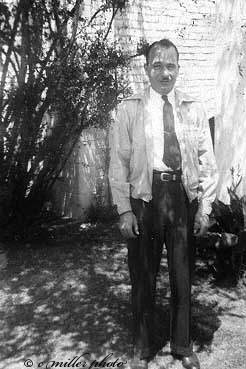 severely by
the Japanese. The most painful task I have ever had was the day I had to
bring Mother and Dad the news that their youngest son was missing in
action. He never fully regained his health, but did return home. He was
promoted to 1st Lt., and was one of the most decorated war heroes in our
state. The Indians are extremely patriotic. They invited Delbert to
Cherry Creek where he was taken into their tribe. They held the ceremony
in a community hall with a very large crowd attending. Several patriotic
speeches were made and the tribal leaders christened him “Flying Eagle”.
A cash gift was presented to him and a big feed (as they called it) was
enjoyed by all. I went with Delbert and we all participated in the Pow
Wow, or sacred Indian dance.
severely by
the Japanese. The most painful task I have ever had was the day I had to
bring Mother and Dad the news that their youngest son was missing in
action. He never fully regained his health, but did return home. He was
promoted to 1st Lt., and was one of the most decorated war heroes in our
state. The Indians are extremely patriotic. They invited Delbert to
Cherry Creek where he was taken into their tribe. They held the ceremony
in a community hall with a very large crowd attending. Several patriotic
speeches were made and the tribal leaders christened him “Flying Eagle”.
A cash gift was presented to him and a big feed (as they called it) was
enjoyed by all. I went with Delbert and we all participated in the Pow
Wow, or sacred Indian dance.
Materials of all kind were in short
supply during the war and for some time after war’s end. We built a
house at that time and I almost wore out a car running all over the
country looking for materials. Our family had grown with the addition of
three girls, Marlene, Ann, and Karen. We were living in a house we had
bought from a family who had left the country during the great
depression. We tore it down, along with the black
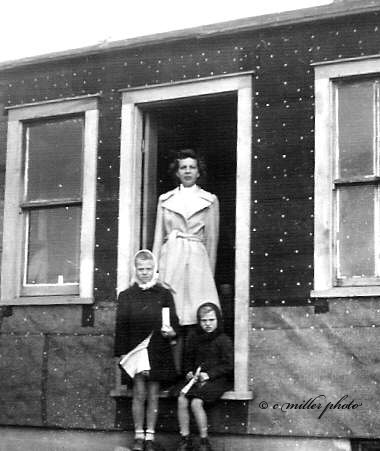 shack and used the
materials to build a new house beside the dam. A lot of trees grew up
along the shoreline, which made a nice yard for us. The girls could go
fishing any time they wanted and many times I would come in from the
field and have a fresh fish dinner they had caught. We had an old Chevy
coupe Marlene learned to drive when she was only 7. She used to bring me
lunch and things I needed when I was in the field. She had a few
mishaps, but none too serious. Ann liked to ride horseback and fell off
Dad’s old Rosie several times, but usually managed to get back on. Karen
was always the cat lover and had a beautiful yellow cat named Fluffy.
Fluffy was always having kittens. One day I heard Karen tell a little
friend that her cat’s name was Fluffy and she’d had a MILLION kittens!
shack and used the
materials to build a new house beside the dam. A lot of trees grew up
along the shoreline, which made a nice yard for us. The girls could go
fishing any time they wanted and many times I would come in from the
field and have a fresh fish dinner they had caught. We had an old Chevy
coupe Marlene learned to drive when she was only 7. She used to bring me
lunch and things I needed when I was in the field. She had a few
mishaps, but none too serious. Ann liked to ride horseback and fell off
Dad’s old Rosie several times, but usually managed to get back on. Karen
was always the cat lover and had a beautiful yellow cat named Fluffy.
Fluffy was always having kittens. One day I heard Karen tell a little
friend that her cat’s name was Fluffy and she’d had a MILLION kittens!
Having no electricity or bathroom,
the little house at the end of the path was a real necessity. Ours had a
slight cave-in on the north side and the cold wind blew in just in all
the wrong places. I decided to remedy this by dumping the ashes from the
furnace along that edge. This worked very well. One night I was in a
hurry as we were going to a movie in town, something we rarely did. I
hurried to get all the chores done early so we could be there in time.
As we drove over the top of the last hill on our way home, I said to
Gen, “Look at the huge golden moon tonight.” She replied, “That isn’t
the moon – our outhouse is on fire!” Sure enough, when we got to the
yard, only a smoldering pile of red coals greeted us where the little
house used to sit. Fred had bought an old schoolhouse, complete with two
outhouses, and he agreed to sell one to us. Now we were really in style,
for this little house had three holes instead of the usual two. From
then on we bragged we were a “three-holer family”.
In 1949 the South Dakota State AAA
Committee notified me that there was a civil service opening for an
administrative assistant in the state office at Huron. After talking it
over, we decided I should try for it, as we wanted to get closer to good
schools for the girls. I received the appointment and was assigned a
territory of 12 counties, most of them located west of the Missouri
River. My job was to coordinate work between the state and county
offices, and to assist counties in soil and water conservation, price
supports and crop insurance. We rented the Dupree ranch to Donald and
Florence, but lived in half of the house until we could get a place to
live in Spearfish. In March of 1950, we bought a house and hired a
Deadwood moving company to come to Dupree to move our possessions. Just
before we were to move, a warm spell began which thawed the snow and
took most of the frost out of the ground. The water rose in the creeks.
The mud was so bad we had to park the moving truck three miles away on
Cherry Creek Highway and haul everything to it with tractors and
trailers. Several neighbors helped us. When we finally got everything
loaded and the truck on its way, we packed some bedding and a small
breadbox of food in the car and the family began the journey. The wind
switched to the north, bringing in a blinding snowstorm. Darkness
overtook us, and when we drove through Belle Fourche we could hardly see
the streetlights in the storm and darkness.
It was late at night when we
arrived at our Spearfish house and the moving van was not there. We
spread the bedding on the floor and got a badly needed, short nights
rest. There was no food in the house and we hated to go downtown wearing
the clothes we had worn while loading the moving van in the mud, but I
finally decided to forget pride and get everyone something to eat. That
afternoon the van came and we could clean up.
The next morning I had to go back
on the road for my job so Gen was left with the big responsibility of
getting the family settled and the girls into school. When I came home
the next weekend the house was cozy, the kids had made new friends in
school, and everything was great.
After living in the old house a few
months however, we put it up for sale. While I was out on the road, Gen
sold it and we had to find a place to stay. The new owners agreed to
rent one large bedroom to store our things until we could build a new
building. Since it
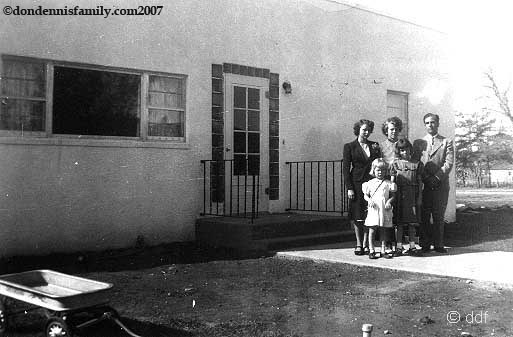 was summer, the family went to Dupree and stayed in a
little shack in Delbert and Eva’s yard, until school started. Then we
went back to Spearfish and rented a one room cabin as the contractor was
behind schedule. Finally the great day arrived that we could move in! I
was assigned some new counties and loved my job. It was made easier with
Gen as my secretary. She had taken journalism in school and could write
news releases and correspondence that really opened the eyes of the
people in the state office.
was summer, the family went to Dupree and stayed in a
little shack in Delbert and Eva’s yard, until school started. Then we
went back to Spearfish and rented a one room cabin as the contractor was
behind schedule. Finally the great day arrived that we could move in! I
was assigned some new counties and loved my job. It was made easier with
Gen as my secretary. She had taken journalism in school and could write
news releases and correspondence that really opened the eyes of the
people in the state office.
With the family in the new home and
everyone happy in school, we thought we were off to a good start – until
winter arrived. We discovered that the block house, because it wasn’t
furred out and insulated, built up moisture on the inside. In extremely
cold weather the moisture froze into a sheet of ice on the walls that
were furthest from our inadequate heating system. After suffering
through the winter, we decided to sell. It was easy to sell because it
was a beautiful place with the creek, plus the fruit and shade trees we
had planted.
Gen hadn’t been feeling well. The
doctor said she’d had a light heart attack and the high altitude in
Spearfish wasn’t good for her. I had been assigned extra counties in the
central and southern Black Hills, so we decided Sturgis would be an
ideal headquarters. The altitude was lower and we would be closer to the
ranch at Dupree.
We rented a house in Sturgis, found
a contractor to build a new house which was competed without too many
problems, and again rejoiced when we were able to move in.
The national election brought a
change of administration in Washington, and even though I had the best
civil service rating of all the fieldmen in the state, I was notified
that I no longer had the job. The agency was putting office managers in
each county office. I applied in Meade County and got the appointment.
Things worked out really well as I could stay home with the family at
about the same salary as when I traveled all the time. Gen found work
also at the office of an optometrist.
I won several awards while managing
the Meade County office from September 1952 until 1960. The one I
treasure most is the award for the most outstanding office in the
fieldman’s area of 12 counties, and second most outstanding office in
the state. A large share of the credit was due to my four good
secretaries, and I told them so.
After a few years of living in
Sturgis, I started itching for some land again. We sold our house in
1956 and bought 60 acres of unimproved land 5 miles east of town. We
hired a contractor to build a house, drilled a 915 foot flowing well and
planted a lawn, big gardens, strawberries, and fruit and shade trees.
With plenty of water, everything did so well that today we are almost
hidden from the road by the big trees. We harvest apples for our own use
and to give to relatives and friends. There is a small creek running
behind the house, with a lot of trees along the creek. We have lived
here since July of 1957.
During the first few years on this
place, we brought out some horses from the Dupree ranch. I traded for a
couple of milk cows, and we were once again ranchers . . . on a small
scale. After a few months we sold the cows.
The national administration changed
again in 1960 when Jack Kennedy was elected president. Several changes
were made and I was given back my fieldman position. I was really happy
to be back, and my counties all gave me a good welcome. The agency
started training programs. I was given short courses in psychology and
public relations at South Dakota State College and Idaho State
University.
With only Fred living at our ranch
at Dupree, we drove there nearly every weekend and kept the place going.
On January 1, 1969, the Hills
received an enormous amount of snow and Dupree had the most snow it had
ever received. Gen went to Dupree to feed the cattle and cook for Fred.
When I got back to Sturgis from my traveling one Friday night, I got
word that Fred had gone to Gettysburg for a truckload of corn for his
cattle. While he was snowbound there, Dupree had a total power out. I
almost panicked with Gen at the ranch with no heat – all the roads
were
blocked from the ranch to town. I went to a dealer in Sturgis at
sundown, and he showed me snowmobiles. I had to have him show me how to
run the one I bought, then loaded it on the pickup and headed for
Dupree. I got there about 8:30 that evening, unloaded the snowmobile and
left the pickup in Buck’s [Delbert’s] yard. The night was pitch black
when I headed for the ranch. The snow completely obliterated the road.
Drifts were 10-12 feet deep. I must have tipped over a dozen times, but
would turn it over and start out again. Finally I made it to the ranch
and learned Gen had figured out how to run the furnace without
electricity. It was supposed to require a thermostat to operate. The
wind was so strong that it created a draft; Gen had cut up old fence
posts to add to the coal. The house was warm and homey. She had
everything under control, but was so glad to see a human being and get
some very welcome mail. The cattle looked good after Gen’s care. I spent
the weekend and fed cattle for her, but then had to get back on the job.
I piloted the snowmobile the 7½ miles back to Dupree and left it in
Buck’s yard.
In the fall of 1969 I retired from
my job with the U.S. Agriculture Department and we moved back to the
Dupree ranch full time for 4 years. We rented our Sturgis home and moved all of
our possessions to the ranch. I liked it there, but Gen wasn’t too fond
of it. She was tired of being snowbound in the winter and mud-bound half
the summer. Fred had moved into a mobile home in Dupree.
I sold the cattle in the spring of
1973, and in May we began to move back to our Sturgis home. Since
retirement I have begun rock collecting and have some very nice
specimens. Gen collects dishes. We are both active in church and
stay busy taking care of the yard, garden, and doing all the things it
takes to keep a home together. Our biggest blessing is our family.
I lost both of my parents and three
brothers between 1956 and 1984. I have lived during both Word Wars, the
Korean War and the Vietnam conflict. I have seen 13 Presidents come and
go. I have lived 74 years, but I don’t feel OLD . . . just not as young
as when “it all began”.
